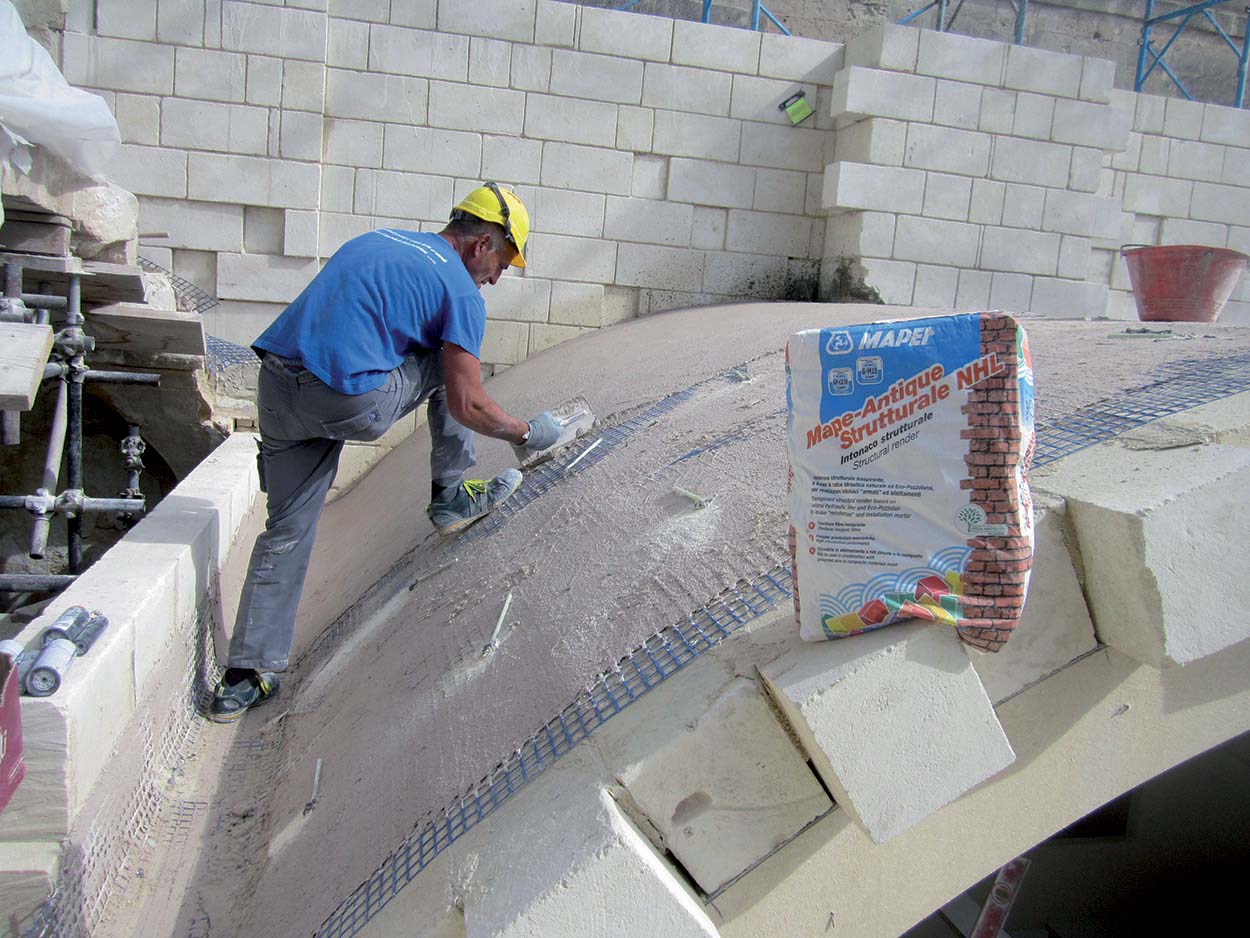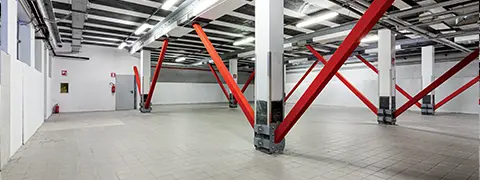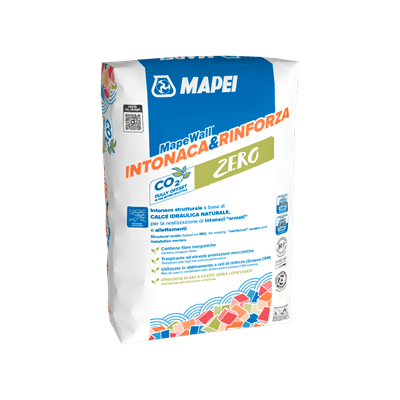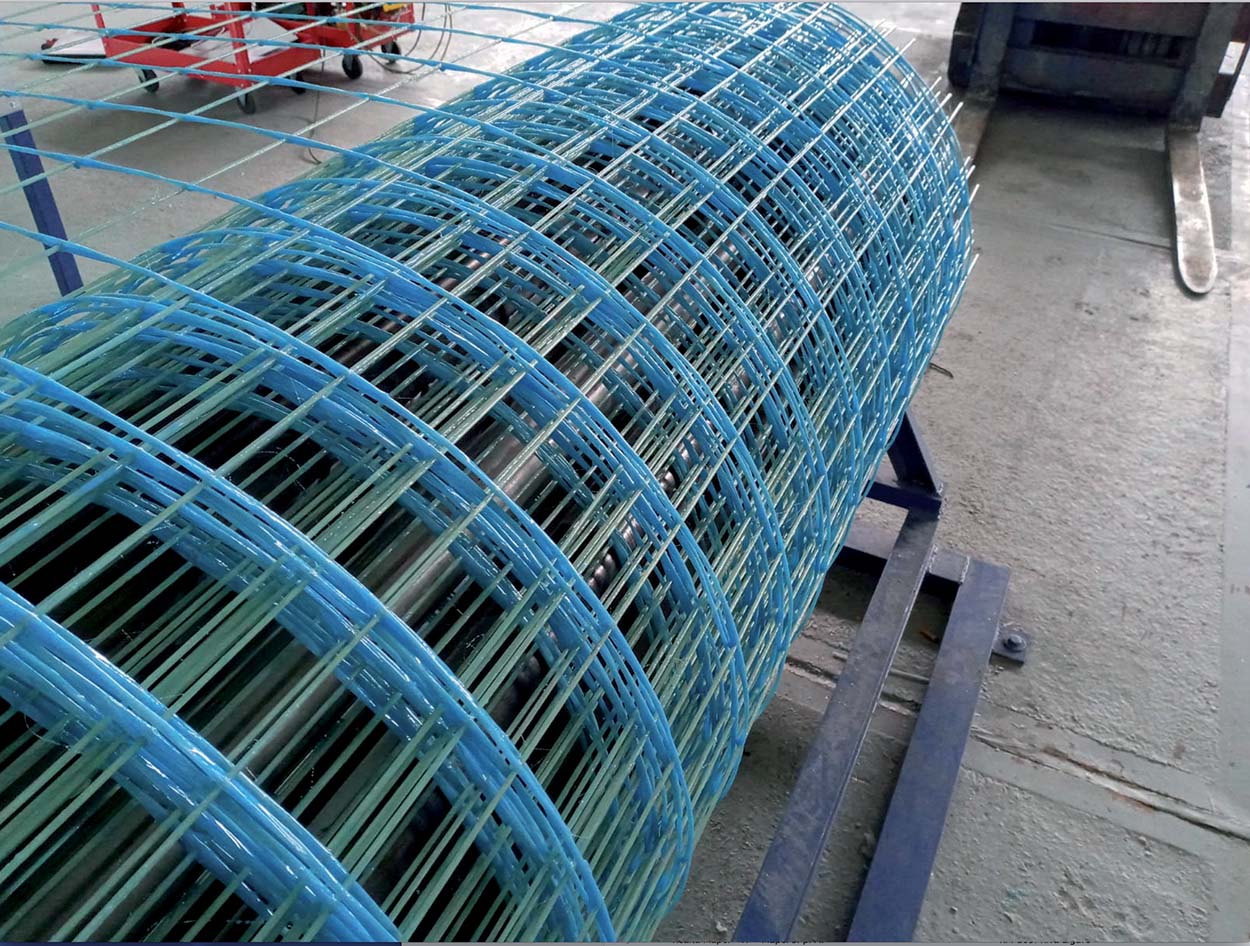
CRM Technology Systems
Innovative systems for the structural strengthening of existing buildings.
Innovative systems for the structural strengthening of existing buildings.
The constant evolution in technologies and standards covering the renovation and regeneration of buildings has led to the use of innovative materials for the structural strengthening of existing buildings becoming more widespread. Amongst all these new technologies, CRM (Composite Reinforced Mortar) systems are now widely adopted as an alternative to the more traditional reinforced render technique, and are, in fact, an evolution of this technique.
CRM systems are reinforced renders consisting of structural mortars, applied in layers 3 to 5 cm thick, used in combination with preformed, glass fibre composite (GFRP) mesh mechanically connected to the masonry to be strengthened using special connectors, which are also made from composite material, their function being to transfer stresses from the substrate to the strengthening package.
In this type of system, the function of the mesh is to absorb tensile stresses, while the mortar helps absorb compressive forces. The aim of this type of technology is to improve the mechanical properties of masonry and increase collaboration between the various elements masonry is made from.
This means that these systems are recommended for improving and upgrading the seismic capacity of historic buildings, and for more homogeneous, widespread consolidation of all types of deteriorated masonry. Also, they are used to improve the compressive strength of load bearing wall, of vaults by adding a collaborating screed and to form anti-collapse systems for ceilings.
Compared with traditional systems, consisting of the application of reinforced render made from electro-welded mesh and several centimetres of concrete, CRM systems are more ductile and lighter, in that more compact layers are applied and the mesh is made from more lightweight material. Besides, they are characterised by their higher durability and by being fully compatible with existing masonry. What is more, not having metal components within the system, there is no problem of corrosion in rebar.
From a standards aspect, CRM systems can be qualified through ETA (European Technical Approval) and national guidelines. For their design, they can be equated to the traditional strengthening system.
HIGH PERFORMANCE LIME-BASED MORTARS
In order to guarantee excellent mechanical properties and a high level of chemical/physical compatibility with all types of substrate on structures (brick, tuff, stone and mixed), including those of historic and architectural interest, Mapei has developed two high-performance (CS IV and M15), breathable, fibre-reinforced, natural hydraulic lime-based mortars for render and masonry recommended for use in CRM systems, which may be applied either by trowel or with a rendering machine:
■ MAPEWALL RENDER & STRENGTHEN: natural hydraulic lime-based mortar with reactive inorganic compounds, natural sand, special admixtures and micro-fibres, with very low emission of volatile organic compounds (EMICODE EC1Plus);
■ MAPE-ANTIQUE STRUTTURALE NHL: cement-free, NHL (Natural Hydraulic Lime)-basemortar with Eco-Pozzolan, natural sand, recycled materials, special admixtures, micro-fibres and glass fibres.
GLASS FIBRE STRUCTURAL MESHES: LIGHTWEIGHT AND STRONG
The meshes used in CRM strengthening systems increase overall strength and resistance and are necessary in order to confine the elements to be reinforced.
The meshes in Mapei’s portfolio are preformed and made from alkali-resistant glass fibres and a polymer matrix. These types of mesh are applied in combination with preformed glass fibres connectors, which are also alkali-resistant, and guarantee connection of the reinforced render with the masonry element and with the strengthening system applied on the opposite side of the element, where provided for. To anchor the connectors to the substrate or to couple them together, a chemical anchoring product is used, such as MAPEFIX VE SF. Mapei has two types of mesh available, as well as connectors and special pieces.
MAPENET EM RANGE
This range is made up of MAPENET EM30 and MAPENET EM40, pre-impregnated, A.R. (alkali-resistant) glass fibre meshes (FRP) containing at least 16% of high-strength zirconium dioxide which, thanks to their special weave pattern, give strengthened structures a high level of ductility and more even stress distribution.
The mesh is fastened monolithically to the structure with MAPENET EM Connector, preformed, L-shaped fasteners made from alkali-resistant glass fibres and thermo-setting resins, such as vinylester-epoxy resin, which are inserted into the masonry at a recommended rate of around 5 connectors/m². The meshes are highly flexible so they may be shaped accordingly to suit the form and geometry of the structure.
THE NEW MAPENET EMR RANGE
The new meshes from the MAPENET EMR range (MAPENET EMR 33/66/99) differ from the types mentioned above for their higher sectional stiffness, which means special angular/corner pieces need to be used (MAPENET EMR ANGOLARE 33/66/99). Using stiffer mesh makes full use of the bidirectional membrane-type behaviour of the mesh, creating structural continuity by using special corner pieces in order to also create monolithic mesh in particularly difficult areas, such as internal and external edges and corners. As with the EM range, the new MAPENET EMR meshes also need a connection to be created between the system and the substrate to transfer stresses, which is achieved by using special connecters, also made from glass fibres, called MAPENET EMR Connector.
The meshes and connectors used in CRM systems are made from lightweight materials, they are easy to handle, are dielectric (do not conduct electrical currents) and they do not suffer from corrosion, ageing or decay. What is more, thanks to their particular conformation, they are characterised by their excellent adhesion to the mortar they are applied with.
Daniele Sala. Restoration Line for Masonry Building;
Rossella Comensoli, Structural Strenthening Line, Mapei SpA (Italy)












